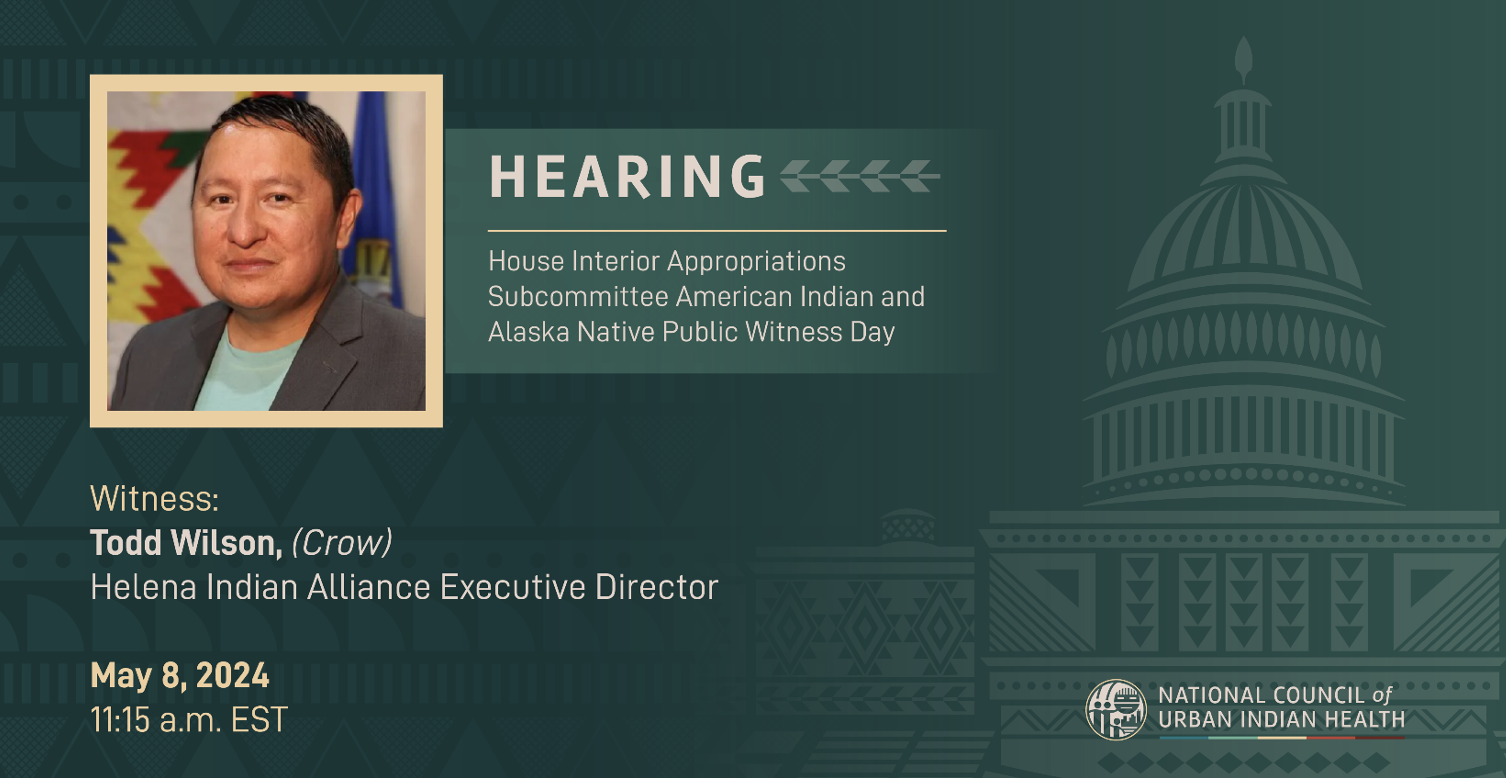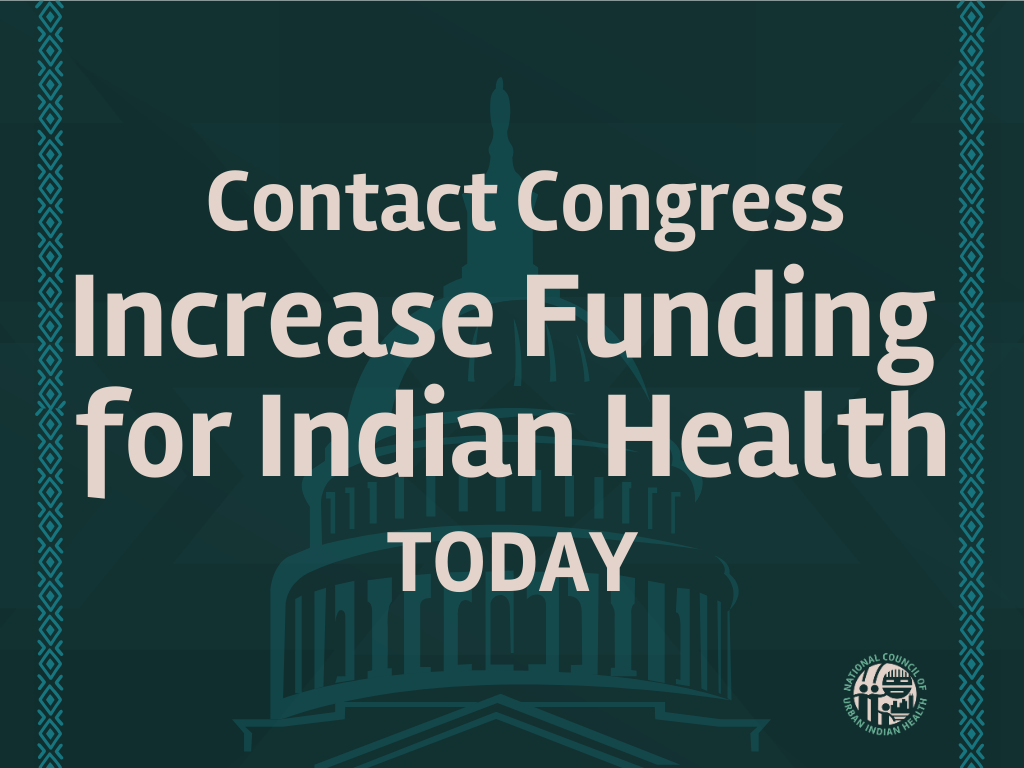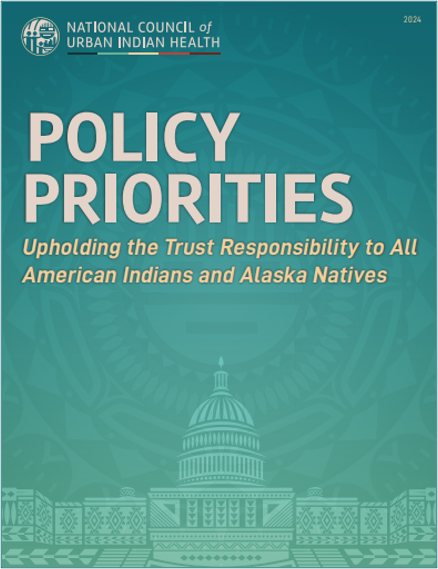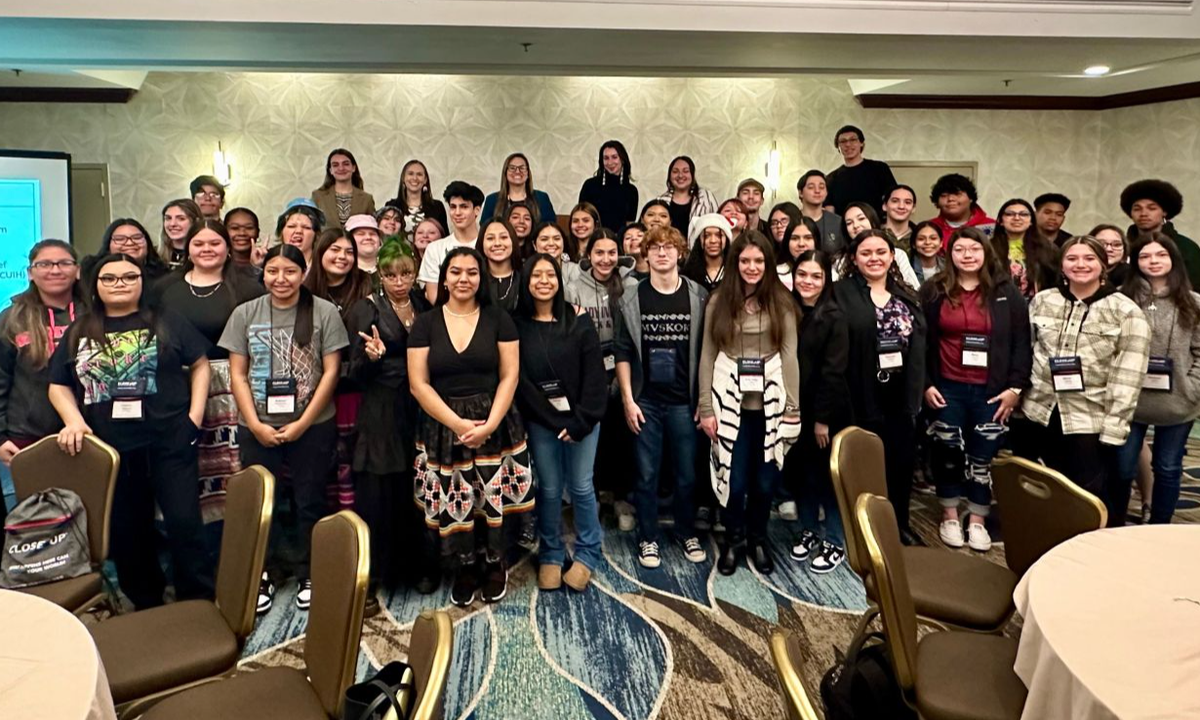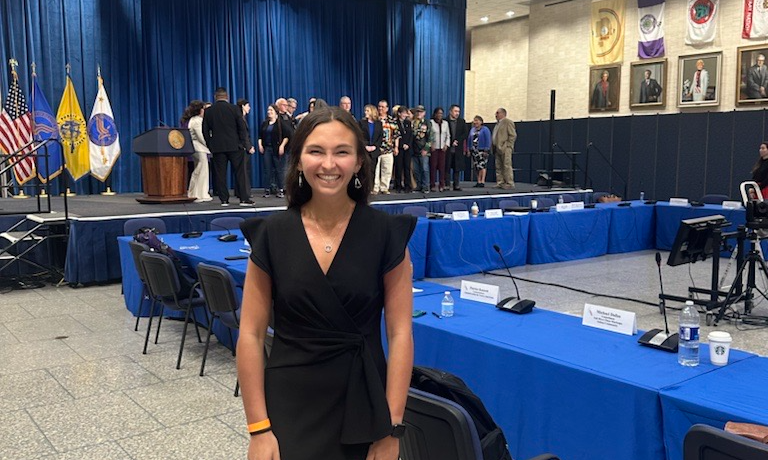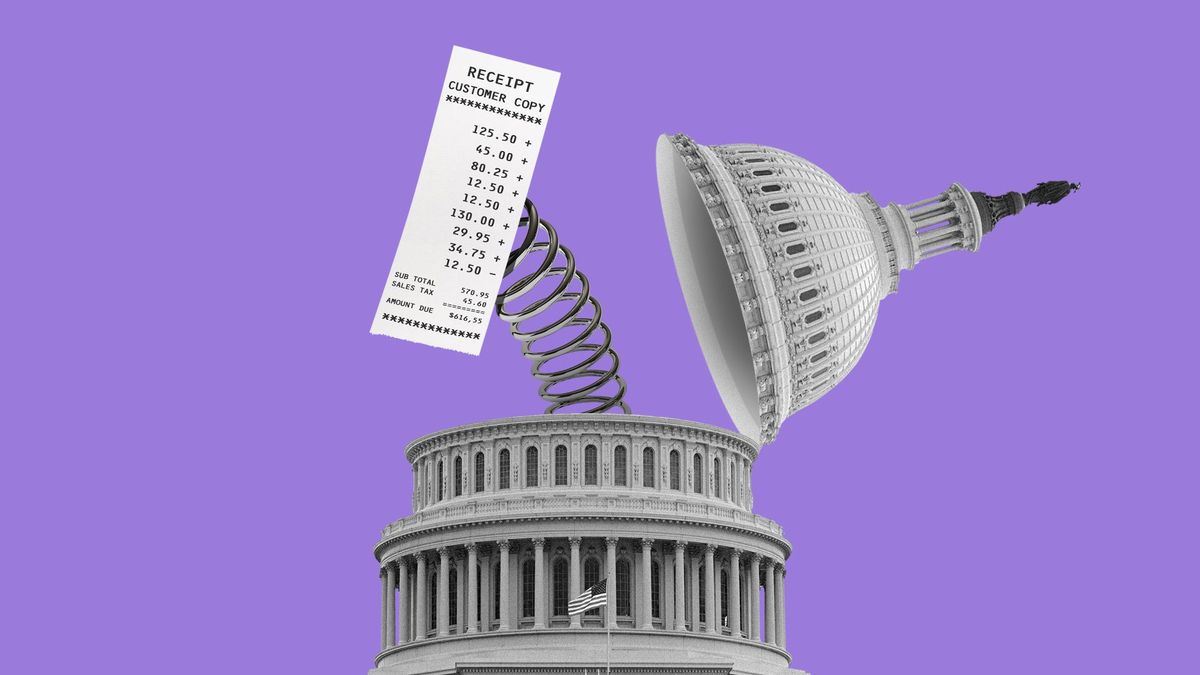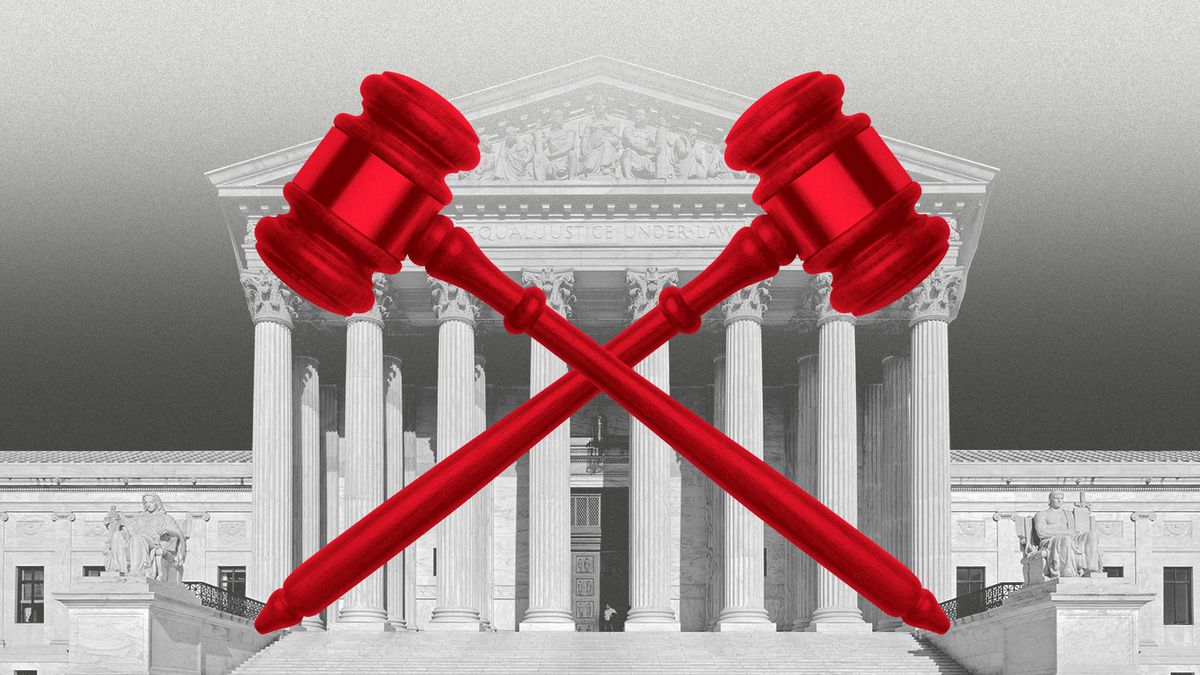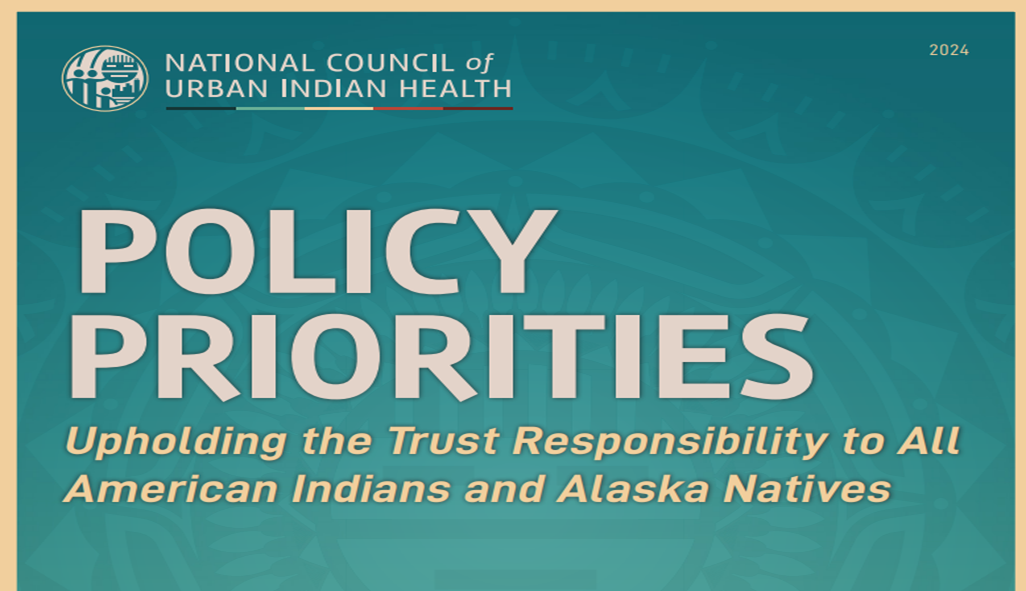On March 14, 2024, the National Council of Urban Indian Health (NCUIH) joined Partners in Health and 22 other organizations and institutions in sending a letter to House and Senate Interior-Environment Appropriations Subcommittee Leadership expressing support for the inclusion of $30 million in additional funding for the Fiscal Year (FY) 2025 Interior, Environment, and Related Agencies appropriations bill to support the graduate medical education (GME) programs. GME programming addresses urgent physician vacancy rates in the Indian Health Service (IHS) Facilities/Tribally Operated Programs/Urban Indian Organizations (I/T/U) system through funding to recruit, train, and retain health care workers.
IHS GME Programs vs. Other Government Agencies
Currently, IHS does not receive any funding for a GME program. The chart below shows the funding given to other federal agencies for their respective GME programs.
| Agency |
Full-time GME trainees or rotation slots |
Annual GME budget line |
Annual funded trainees located at or partnered with I/T/Us |
| Indian Health Service |
0 |
$0 |
0 |
| Health Resources and Service Administration: Teaching Health Center Graduate Medical Education Program (mandatory) |
932 (AY22) |
$119 million (FY23) |
69 (6 programs) |
| Health Resources and Services Administration: Children’s Hospitals Graduate Medical Education Program |
8,244 (FY21) |
$385 million (FY23) |
0 |
| Veterans’ Health Administration |
12,000 slots with 6 rotators per year [75,000 trainees) |
$874 million (FY23) |
0 (the 2018 MISSION Act Pilot Program on Graduate Medical Education and Residency Program set to train 100 individuals) |
| Centers for Medicaid and Medicare Services: Medicare (mandatory) |
98,542 (FY20) |
$16.2 billion (FY20) |
6 (1 program) |
| 44 states: Medicaid |
No exact figure |
$7.39 billion (2022) |
2 (1 program) |
| Department of Defense |
1,455 |
No exact figure |
0 |
| National Total |
144,660 (2021) |
$25 billion |
77 (8 programs) |
Importance of Staff Increases at UIOs
The Government Accountability Office has reported that the IHS has a 25% vacancy rate for health care providers. This issue is felt by Urban Indian Organizations (UIOs). Chronic underfunding of IHS has created challenges for UIOs to recruit and retain providers due to an already limited workforce with experience serving in American Indian and Alaska Native (AI/AN) communities. Expansion of the GME program would create more opportunities to fill gaps in staffing at UIOs, fulfilling the federal trust responsibility to provide quality healthcare to AI/AN people.
Full Text of the Letter
Dear Chairs Simpson and Merkley and Ranking Members Pingree and Murkowski,
We, the undersigned organizations and individuals, write in support of the inclusion of $30 million in new funding in the FY2025 Interior, Environment, and Related Agencies appropriations bills to address chronic clinical staff shortages across Indian Country through graduate medical education (GME) programming. Such funding should be made available to Indian Health Service facilities, Tribally Operated “638” Programs (under P.L. 93-638), and Urban Indian Organizations, collectively referred to as I/T/Us. We support funding for (1) developing and financing physician residency programs, including (A) fully accredited multiyear programs and (B) month-long clinical experiences for medical trainees; (2) developing and financing physician post-residency fellowship programs; and (3) coordinating GME efforts across I/T/Us. These proven interventions to recruit, train, and retain health care workers would help reduce chronic provider shortages across Indian Country. We view these targeted interventions for physician shortages as part of a broader response to workforce shortages across health professions.
Our request here echoes the urgent requests from a variety of key stakeholders. Congress requested a 2018 GAO Report on provider vacancies, which describes the role of GME programs in fulfilling workforce needs (pp. 28, 33, 44-46). The Indian Health Service FY2024 Congressional Budget Justification (p. 57) and FY2023 Justification requested new funding for GME programming. The FY2025 National Tribal Budget Formulation Workgroup’s Request identifies the need for GME programming, e.g., from the Great Plains Area (p. 120) and the Oklahoma City Area (p. 183). The National Indian Health Board’s 2023 Legislative and Policy Agenda for Indian Health (p. 9) calls for specific investments in graduate medical education staffing and infrastructure in Indian Country. Congress explicitly authorized this programming in the Indian Health Care Improvement Act (1616c. Tribal recruitment and retention program and 1616p. Health professional chronic shortage demonstration programs).
Physician vacancy rates were as high as 46% in 2018 across IHS regions (The Indian Health Service and the Need for Resources to Implement Graduate Medical Education Programs, JAMA, 2022; GAO-18- 580). Physician shortages across Indian Country have been attributed to limited recruitment incentives, lower salaries, lengthy hiring processes, and geographic isolation.
(1A) Accredited, multiyear physician residency programs are important for recruiting and retaining physicians to underserved areas. Physicians who train in rural environments are much more likely to stay and work there over the long-term. Although USG invests billions in residency training programs across Medicare, Medicaid, HRSA, VA, and DOD, there are only six established, accredited residency programs across I/T/Us. There is high demand from I/T/U hospitals and prospective residents, including AI/AN trainee who have participated in the USG-funded Indians Into Medicine (INMED) program, to establish additional programs, especially in primary care specialties. Developing and accrediting a residency program is a multiyear process with many steps, and funding to IHS would both fill important gaps in current financing from other federal agencies and enable the creation of new programs across I/T/Us. Discretionary appropriations to HRSA’s Rural Residency Planning and Development (RRPD), Teaching Health Center GME (THCGME), and Primary Care Training and Enhancement (PCTE-RTPC) programs have been productive, with notable impacts on tribal health workforce development. However, this funding does not meet the volume of need, nor does it include additional costs specific to I/T/U program needs. As an example of per-program-cost, HRSA RRPD awards $750,000 over a three-year implementation period for recruitment, faculty development, and accreditation. Residency programs under CMS vary in per-resident reimbursement, but HRSA THCGME program caps total funding at $160,000 per resident. Examples of leading residency programs across I/T/Us include: the IHS Shiprock– University of New Mexico Family Medicine Program, the Chickasaw Nation Family Medicine Residency, and the Seattle Indian Health Board Family Medicine Residency Program.
(1B) Clinical experiences in month-long supervised rotations across I/T/Us provides an important entry point for new physicians to serve in Indian Country. In Rosebud and Navajo Nation, these rotations have recruited physicians who have stayed to serve in permanent staff roles. While these rotations currently occur with limited regional coordination between academic medical centers, I/T/Us, and IHS staff, this system could be coordinated and scaled significantly with financial support from Congress. IHS is the only large federal health system to lack formalized partnerships with academic medical centers. This gap hinders the ability to recruit and retain physicians across I/T/Us. The Veterans Health Administration, in comparison, has had 75 years of active partnership with teaching hospitals through its Office of Academic Affiliations. The VHA 2023 budget of $873.5 million for GME will support 75,000 individual trainees and nearly 12,000 GME positions. Academic partnerships provide many benefits, including stability, shared faculty, clinical, and research staff, and a wealth of experience. Virtually all of VHA GME programming is sponsored by an academic affiliate, and 99% of medical schools are affiliated with VHA. This model should be replicated with I/T/Us.
(2) Post-residency 1-2 year physician fellowship programs have been an important source of high-quality primary care physician recruitment across Indian Country, with notable impacts on reducing vacancies in Navajo Nation, South Dakota, and Alaska. These fellowship programs include supported clinical training and mentorship that taps into the resources and clinical excellence of leading academic medical centers, such as Massachusetts General Hospital, University of California San Francisco, University of Washington, Icahn School of Medicine at Mount Sinai, and the University of Utah. Fellows cost significantly less than locum tenens staffing solutions, while providing the necessary resources to properly integrate and support new physicians into communities of care. Fellowship costs include fellow salary and benefits, travel, housing, professional development, licensing, insurance, recruiting, administration, and faculty time—up to $220,000 per fellow per year. The HEAL Fellowship, a partnership between Navajo Nation and the University of California San Francisco that began in 2015, has recruited and retained two dozen primary care physicians to stay and serve in Navajo Nation. All graduates from the University of Washington Global and Rural Health Fellowship have thus far remained in full-time clinical service across I/T/Us. These successes provide a strong case for scaling up fellowships.
(3) Additional funding could greatly improve the coordination of GME programs across I/T/Us and support IHS working closely with academic medical centers and key agencies such as CMS, HRSA, and VHA. Given the longstanding precedent across I/T/Us of regional coordination and local self-governance, funding should be made available for GME coordination at multiple levels of governance.

